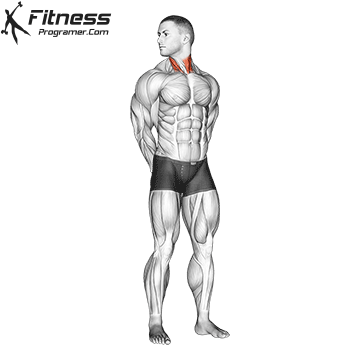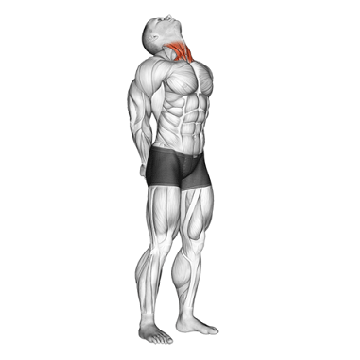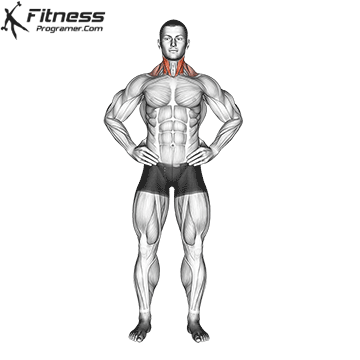Contents
What Is Neck Cracking?
Neck cracking refers to the audible popping or cracking sound that occurs when you turn, twist, or manipulate your neck. This sound often results from cavitation, a process where gas bubbles (primarily nitrogen and carbon dioxide) within the synovial fluid of a joint collapse or burst as pressure changes in the joint capsule. It’s similar to the sound you hear when cracking knuckles and is a form of self-manipulation often done to relieve tension or stiffness in the cervical spine.
Why Does Neck Cracking Become a Habit?
Many people develop a habitual neck cracking behavior as a response to:
- Perceived tension or stiffness in the neck and upper spine.
- Psychological reinforcement from the sense of temporary relief after a crack.
- Postural imbalances due to sedentary behavior, desk work, or poor ergonomics.
- Stress or anxiety, which can lead to increased muscle tightness and a compulsion to stretch or “release” the neck.
While occasional neck cracking is often benign, repeated manipulation can become compulsive, especially in individuals experiencing chronic discomfort or reduced range of motion.
Are There Benefits to Neck Cracking?
Some people report subjective benefits from occasional neck cracking, including:
- Temporary relief from tightness or stiffness.
- A sense of improved mobility or flexibility.
- Reduction in stress or mental tension, especially in those who associate the “crack” with relaxation.
However, it’s important to note that these are temporary and anecdotal. According to clinical research, the audible pop doesn’t necessarily indicate a successful or therapeutic adjustment, and excessive cracking may mask underlying biomechanical issues.
The Harms of Neck Cracking
Though occasional self-induced neck cracking is not inherently dangerous, habitual or forceful neck manipulation can have health risks:
1. Joint Instability
- Over time, repeated cracking may stretch ligaments around the cervical vertebrae, potentially leading to hypermobility or instability of the joint.
2. Increased Risk of Injury
- Cracking the neck with excessive force or inappropriately may damage soft tissues, nerves, or blood vessels such as the vertebral artery, which, though rare, can result in stroke.
3. Masking Underlying Problems
- Reliance on cracking may delay appropriate evaluation and treatment of issues like cervical disc herniation, facet joint dysfunction, or nerve impingement.
4. Muscle Imbalance
- Constant manipulation may cause reliance on passive movement rather than addressing the root cause, such as muscle weakness or poor posture.
How to Quit the Neck Cracking Habit
If you find yourself habitually cracking your neck and want to stop, consider the following strategies:
- Postural Correction: Focus on proper ergonomics, especially if you spend long hours seated. A balanced head and neck position reduces the urge to self-manipulate.
- Physical Therapy: Work with a licensed physical therapist who can assess cervical biomechanics and provide manual therapy, dry needling, or mobilizations tailored to your needs.
- Mindfulness Techniques: Use relaxation and breathing exercises to manage stress-related tension that often leads to neck cracking.
- Chiropractic or Osteopathic Care: If professional spinal adjustments are needed, they should be performed by trained clinicians, not through self-manipulation.
- Strengthening & Stretching Exercises: Engage in a routine targeting deep neck flexors, trapezius, and shoulder girdle to restore muscular balance. If you spend long hours at your desk in the office, these 10-minute office exercises may benefit you.



Frequently Asked Questions About Neck Cracking
Q: Is neck cracking the same as a chiropractic adjustment?
A: No. While both may involve joint cavitation, a chiropractic adjustment is performed by a licensed practitioner who targets specific joints and uses controlled force, whereas self-cracking lacks precision and may target hypermobile segments.
Q: Can neck cracking cause arthritis?
A: Current research does not support the idea that occasional neck cracking leads to arthritis. However, habitual manipulation may contribute to joint irritation or wear over time.
Q: When should I see a doctor about neck cracking?
A: If neck cracking is accompanied by pain, numbness, tingling, headaches, or reduced mobility, it’s time to seek professional evaluation.
Q: Why does my neck crack when I turn it?
A: That sound often comes from gas bubbles in the joint fluid or tendons snapping over bony structures. If it’s painless and occasional, it’s usually harmless.
Conclusion
Neck cracking is a common behavior that can provide short-term relief from stiffness but carries potential risks if performed habitually or forcefully. While it is not inherently dangerous, understanding its cause and seeking healthier alternatives through posture correction, physical therapy, and proper ergonomic practices is key. If you’re concerned about your neck or experience chronic discomfort, consult a medical professional for a tailored treatment plan.



